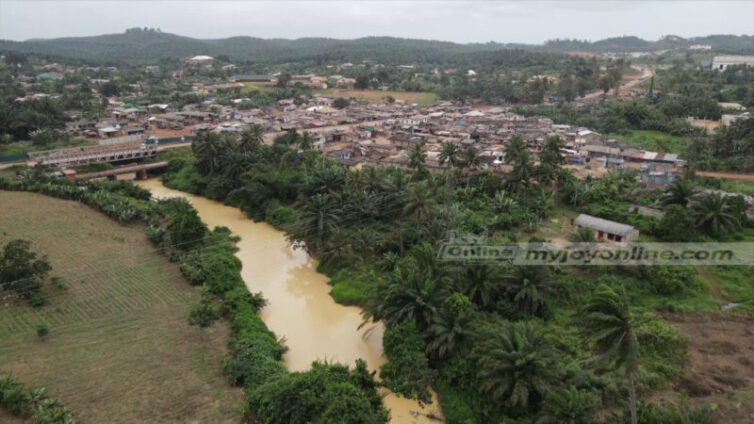In the past decade, illegal mining, locally known as galamsey, has emerged as one of Ghana's most pressing environmental issues. The reckless extraction of minerals, particularly gold, has devastated the country’s natural resources, transforming once-pristine forests, rivers, and farmlands into wastelands.
The impact of galamsey extends beyond local ecosystems, undermining several United Nations Sustainable Development Goals (SDGs), including SDG 15 (Life on Land), SDG 3 (Good Health and Well-being), SDG 14 (Life Below Water), and SDG 12 (Responsible Consumption and Production).
Weak enforcement, corruption, and the allure of quick profits have made it challenging to combat illegal mining through legislation alone.
Despite Ghana's existing regulatory framework—anchored by the Minerals and Mining Act (2006) and the Environmental Protection Agency Act (1994)—galamsey continues to thrive. Recent reports from the Ghana Water Company Limited (GWCL) highlight the severity of the situation, revealing significant water shortages due to the contamination of key sources.
According to GWCL, 60% of the country’s major water bodies have been polluted, with turbidity levels soaring to an average of 14,000 NTU—far exceeding the treatment capacity of 2,000 NTU.
The Ghana Academy of Arts and Sciences has put forward the following recommendations to address these concerns:
1. Immediate revocation of L.I. 2462 by the Executive and Parliament to protect the country's forest reserves, as inaction could lead to the loss of all reserves by 2030.
2. The Executive and Parliament must engage extensively with scientific experts and stakeholders when enacting environmental legislation, using their constitutional powers to safeguard the nation from environmental threats.
The Academy urges immediate action to revoke L.I. 2462 to prevent further environmental degradation and to ban mining in water bodies. They stand ready to collaborate with all stakeholders to protect Ghana's environment and combat illegal mining.
It said illegal mining has left a trail of destruction across the country. Beyond contaminating water bodies, it has devastated farmlands, particularly in cocoa-producing regions, and led to the loss of at least 34 forest reserves.
"As the country prepares for a potential lockdown, all eyes are on the government to respond to this escalating crisis and take the necessary steps to halt the environmental degradation threatening the nation’s water security and agricultural productivity" it said in a statement.
Latest Stories
-
Legon Cities handed transfer ban over unpaid GHC 29,000 compensation to Francis Addo
10 minutes -
Africa World Airlines to reduce air fares by end of June 2025
3 hours -
Nationwide crackdown: Ghana’s Anti-Galamsey Task Force intensifies operations
3 hours -
TOR debt rose to a record $517m as of December 2024
3 hours -
‘Good Girl No Dey Pay’ but it cost me plenty – Maya Blu gets candid
3 hours -
GFA imposes transfer ban on Hearts of Oak over unpaid $70,000 debt to New Edubiase
3 hours -
TOR to resume full operations in October 2025 – Acting MD
3 hours -
Celestine Donkor headlines Exceptional Gratitude concert in Italy
4 hours -
Ghana’s international reserves to be quickly eroded by a sharp decline in gold prices – Fitch Solutions warns
4 hours -
T-bills: Government fails to meet target for 4th consecutive week; investors prefer BoG bills
4 hours -
BDCs up in arms against Laycan disruption
5 hours -
Galamsey fight: 4 excavators seized at Kyebi; offenders flee Birim River
5 hours -
Ecobank-JoyNews Habitat Fair wraps Day 3 with record deals
5 hours -
Ghana’s flooding crisis: An engineer’s perspective
5 hours -
Ayisi releases official music video for ‘Yɛn Ware’ – A love letter in motion
5 hours

